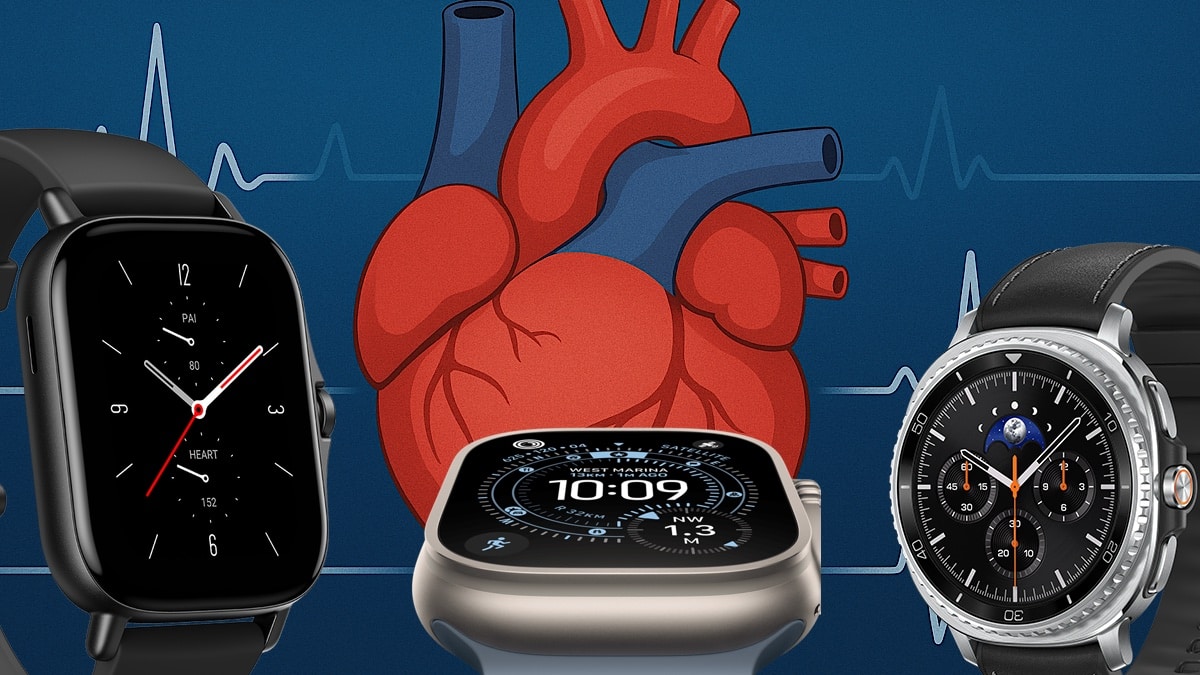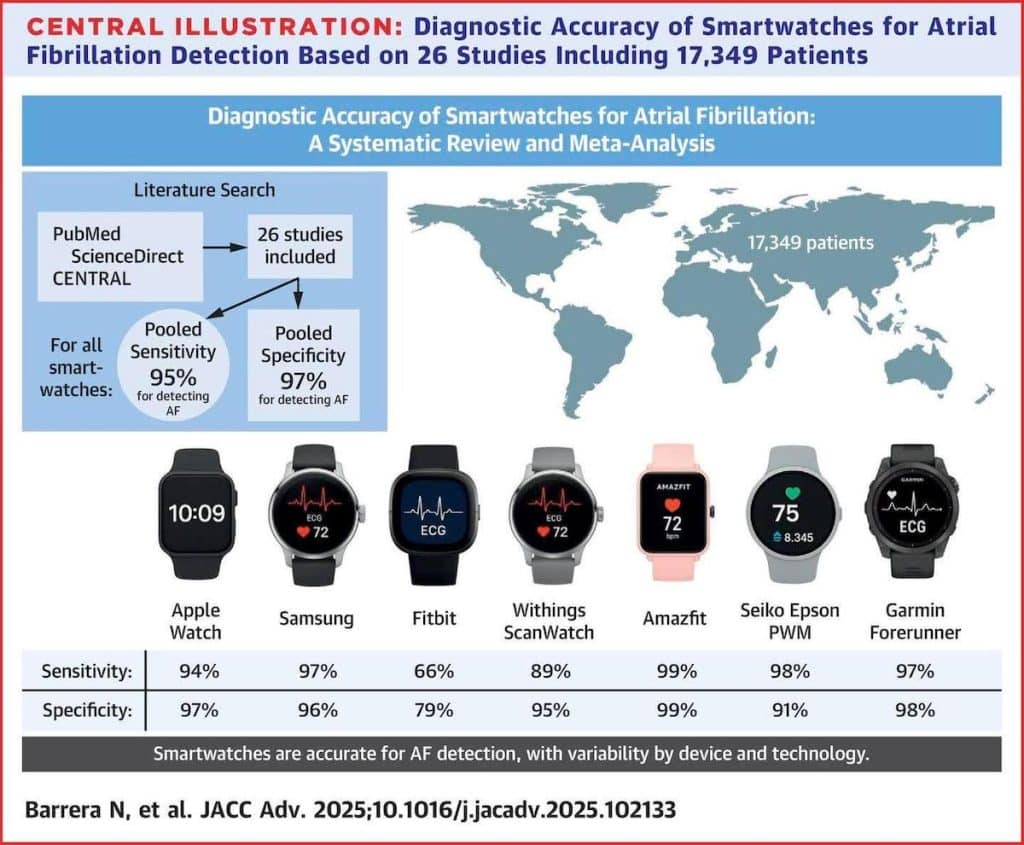A new meta-analysis suggests smartwatches are remarkably accurate at spotting atrial fibrillation, but not all brands perform equally. Samsung’s watches topped the charts, followed closely by Amazfit. Apple was somewhere in the middle, while Fitbit lagged far behind.
A closer look at how brands stack up in heart rhythm accuracy
A new systematic review in JACC: Advances pulled together data from 26 studies covering 17,349 patients to find out just how good smartwatches really are at detecting atrial fibrillation. The answer is, surprisingly good. Across all models tested, the pooled accuracy was impressive, with a sensitivity of around 95 percent and a specificity of 97 percent. That means these devices correctly identified AFib in most people who had it, while also correctly ruling it out in those who didn’t.
But the study didn’t stop at averages. It compared the diagnostic performance of major smartwatch brands, offering one of the clearest looks yet at how they perform relative to each other.
Samsung leads, but Amazfit and Apple aren’t far behind
According to the analysis, Samsung’s smartwatches achieved a sensitivity of roughly 97 percent and a specificity near 96 percent, earning the highest overall diagnostic score with an area under the curve (AUC) of 0.983. In simple terms, that means the watches consistently picked up atrial fibrillation and did so with few false alarms.
Amazfit watches came a close second, showing nearly 99 percent sensitivity and 99 percent specificity across its limited sample, with an AUC of 0.980. Statistically, that’s almost identical performance, but the researchers noted that Samsung’s data was drawn from larger and more consistent studies. Once they adjusted for sample size and variability, Samsung pulls slightly ahead.
Apple Watch ranked just behind those two, with sensitivity around 94 percent and specificity about 97 percent, supported by a large number of studies and the most robust clinical validation overall. The Withings ScanWatch and Garmin Forerunner 945 also performed strongly, though each had very smaller datasets.
Fitbit’s results stood out for the wrong reason. They show only about 66 percent sensitivity and 79 percent specificity, suggesting its AFib detection still trails the pack.
The small gaps between these brands may look dramatic, but the authors caution against overinterpreting them. The Samsung and Amazfit watches appear to lead on paper, yet Apple’s consistency and the volume of clinical research behind it arguably make it the better understood option. The study also found that both photoplethysmography (PPG) and ECG-based detection methods performed about equally well overall.
Interestingly, the researchers found that study design, not brand, explained most of the variation in accuracy. Larger, better-controlled studies tended to report higher performance, regardless of the device manufacturer. This suggests that while hardware and algorithms matter, the quality of testing conditions plays an even bigger role.
Big picture for consumers and clinicians
The takeaway is that modern smartwatches, whether from Samsung, Amazfit, or Apple, can detect atrial fibrillation with impressive reliability under clinical conditions. That’s encouraging for early detection, especially among people who may not notice irregular heartbeats on their own. However, the study also reminds users and clinicians that smartwatch readings aren’t a diagnosis by themselves. False positives can still lead to unnecessary anxiety or testing, especially in younger and low-risk populations.
Still, for anyone already in a risk category or monitoring a known condition, these results show that the technology has matured considerably. Smartwatches are now proving themselves as legitimate tools in preventive cardiology, even if their day-to-day performance still depends on how and where they’re used.
Subscribe to our monthly newsletter! Check out our YouTube channel.
And of course, you can follow Gadgets & Wearables on Google News and add us as a preferred source to get our expert news, reviews, and opinion in your feeds.


